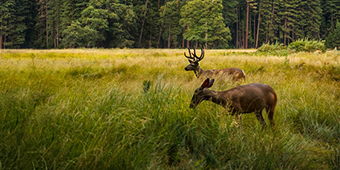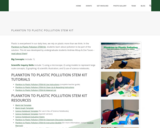
Through an overview of the components of the hydrologic cycle and the important roles they play in the design of engineered systems, students' awareness of the world's limited fresh water resources is heightened. The hydrologic cycle affects everyone and is the single most critical component to life on Earth. Students examine in detail the water cycle components and phase transitions, and then learn how water moves through the human-made urban environment. This urban "stormwater" water cycle is influenced by the pervasive existence of impervious surfaces that limit the amount of infiltration, resulting in high levels of stormwater runoff, limited groundwater replenishment and reduced groundwater flow. Students show their understanding of the process by writing a description of the path of a water droplet through the urban water cycle, from the droplet's point of view. The lesson lays the groundwork for rest of the unit, so students can begin to think about what they might do to modify the urban "stormwater" water cycle so that it functions more like the natural water cycle. A PowerPoint® presentation and handout are provided.
- Subject:
- Applied Science
- Earth and Space Science
- Engineering
- Hydrology
- Material Type:
- Lesson Plan
- Provider:
- TeachEngineering
- Provider Set:
- TeachEngineering
- Date Added:
- 09/18/2014

